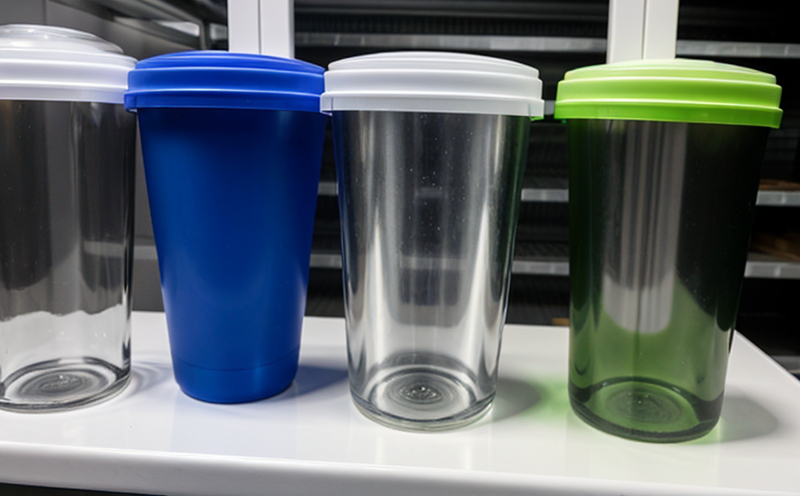ISO 720-8 Density and Composition Verification
The ISO 720 series of standards provides a comprehensive set of guidelines for the testing, sampling, and analysis of glass containers. Among these is ISO 720-8, which specifically addresses density and composition verification in glass packaging.
Understanding the importance of accurate density and composition measurements is critical for ensuring product quality, safety, and compliance with industry standards. This test method ensures that glass packaging meets the specified requirements by verifying its physical properties such as density and chemical composition.
Density is a key characteristic in glass manufacturing because it directly affects the glass's strength, thermal expansion coefficient, and processing conditions during production. By accurately measuring the density of glass containers, manufacturers can ensure they are using the correct raw materials and achieve the desired physical properties for their final product.
The composition of glass plays a crucial role in determining its performance characteristics, such as durability, transparency, and resistance to chemical attack. A precise analysis of the glass's chemical makeup ensures that it meets the specifications set by customers or regulatory bodies like ISO standards.
In the packaging industry, where precision is paramount, even small variations in density or composition can lead to significant issues. For instance, incorrect glass density might result in containers that are too heavy or light, affecting both the economics and functionality of the product. Similarly, discrepancies in chemical composition could compromise the integrity and safety of the packaged goods.
Our laboratory adheres strictly to ISO 720-8 procedures to provide reliable, accurate results. Our team comprises highly skilled professionals equipped with state-of-the-art equipment capable of delivering precise measurements within acceptable tolerances. We understand that every sample is unique, requiring tailored preparation methods and analysis techniques.
From initial consultation through final reporting, we ensure a seamless process for our clients. Our experts work closely with you to understand your specific needs before recommending the most suitable testing protocols. Post-test, detailed reports are provided outlining all findings along with recommendations for any necessary adjustments or improvements based on these results.
By choosing this service, businesses in the packaging sector can enhance their reputation by demonstrating commitment to quality and regulatory compliance while also improving operational efficiency and reducing costs associated with non-conforming products. This testing not only supports internal processes but also strengthens relationships with suppliers and customers alike.
Applied Standards
| Standard Name | Description |
|---|---|
| ISO 720-8:2019 | Density and Composition Verification of Glass Containers – Part 8: Method for Determining Density by Submersion in a Liquid |
| ASTM C457-18a | Standard Test Method for Determination of Density of Transparent Glass by the Archimedes Principle |
| EN 629-3:2016 | Determination of Chemical Composition of Glass – Part 3: Inductively Coupled Plasma Optical Emission Spectrometry (ICP-OES) |
Why Choose This Test
Selecting ISO 720-8 density and composition verification for your glass packaging is essential due to several compelling reasons. Firstly, it guarantees compliance with international standards that are recognized globally within the industry. Secondly, this testing process helps identify potential issues early in the production cycle, allowing manufacturers to make informed decisions about raw material selection and process optimization.
Accurate density measurements enable accurate prediction of how much space a container will occupy during shipping or storage, optimizing logistics and reducing transportation costs. Properly verified composition ensures that the glass meets all required specifications for its intended use, whether it's preserving food freshness in refrigerated environments or enhancing visual appeal for consumer products.
The reliability offered by this service extends beyond just meeting current regulations; it also supports long-term business goals such as sustainable development initiatives and continuous improvement programs. By adhering to these stringent tests consistently over time, companies can build trust with stakeholders including consumers, investors, and regulatory authorities alike.
Customer Impact and Satisfaction
Implementing ISO 720-8 density and composition verification in your glass packaging production process has numerous benefits for customers. One major advantage is enhanced product quality, which translates into increased customer satisfaction and loyalty. Reliable testing ensures that each package meets the highest standards of safety and performance.
Avoidance of non-conforming products reduces waste and minimizes disruptions caused by recalls or returns, saving both time and money for your business. Furthermore, demonstrating adherence to established protocols can help build stronger relationships with suppliers who also value high-quality materials and processes.
Customers seeking assurance about the integrity of their purchased goods will appreciate knowing that rigorous testing has been performed. This transparency fosters trust between you and them, encouraging repeat purchases and potentially expanding market share as satisfied customers become advocates for your brand.





